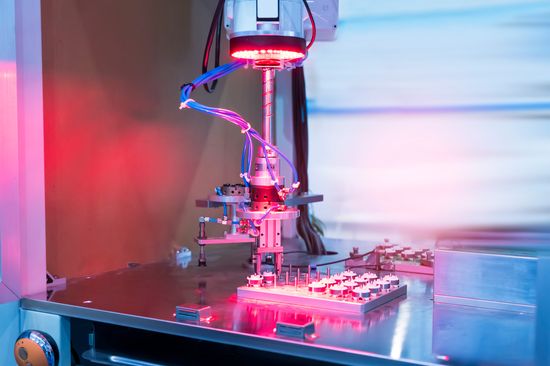Construction plan for the virtual control station

The transition fromc onventional production based predominantly on analogue processes to the requirements of a digitised and automated Industry 4.0 presents major challenges to many small and medium- sized enterprises. Fearing risks and costs, small and medium-sized enterprises (SMEs) often hesitate to take the necessary steps to digitise their workflows vigorously enough.
This is where “Titan” comes in, a project launched in February 2018 that is funded by Germany’s Federal Ministry of Education and Research and has the Maritime Cluster Northern Germany as an associate partner. The project aims to open up a path for SMEs to gradually introduce software and integrate existing systems while remaining independent of individual software providers by using an open-source licensing model.
Among the organisations playing a major role in the project are the Kiel-based IT company wobe-systems and a team led by Dr Wilhelm Hasselbring, a professor of software engineering at the University of Kiel.
“Today, almost every industrially used machine has embedded software", he explains. The project team provides an infrastructure that networks sensors and devices in addition to collecting and analysing a wide range of data. “The Titan software extracts these data from the various applications and then consolidates them", Hasselbring continues. These data are then bundled in a virtual control centre and visualised accordingly.

A company networked in this way can, for example, precisely monitor its resource consumption an optimise it, if necessary. The peak load of machines can be displayed by consolidating these data, Hasselbring explains, adding: “Electricity peaks cost companies a lot of money, because the base load price is usually determined by the peak electricity load.” In this way, targeted data monitoring becomes the foundation for process optimisation. This makes predictive maintenance possible, because a component will provide early notice that it is about to wear out. As a result, companies can replace parts in good time as well as during ongoing operations, thereby avoiding any lengthy production stoppage.
The innovative development concept used by Titan is new for large segments of the medium-sized manufacturing industry. “The project follows the DevOps method,” Hasselbring explains, referring to an abbreviationm for development together with IT operations. The fact that both sides are involved in the development process makes fast, agile adjustments possible. The simple, graphical language developed in Titan is meant to enable even a technician without specialist IT knowledge to adjust the software when production processes are altered.
Titan has been launched with a printing company in Kiel and a manufacturer of inspection systems as associate application partners. But the project, which runs until the end of July 2020, should also be of interest to manufacturing companies in the maritime sector. “We are very open about this,” Hasselbring emphasises.
